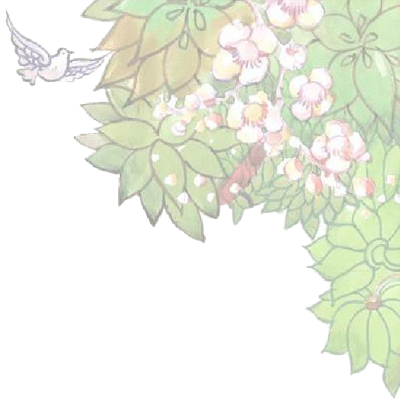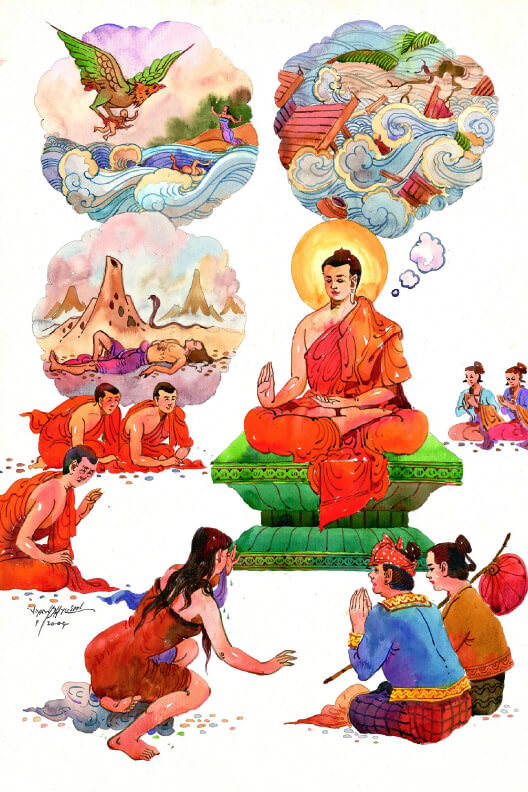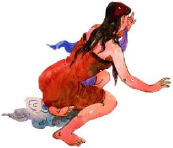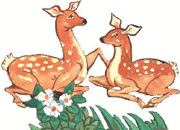59話 すべて亡くし、裸でさまよう女 ・・・・ パターチャーラー

第5部 さまざまな「悪」
第3章 弱き者へ―病の比丘・嘆きの母
59話 すべて亡くし、裸でさまよう女 ・・・・ パターチャーラー

ゴータマ・ブッダの時代、サーヴァッティ(舎衛城)のとても裕福な商人に女の赤ちゃんが生まれた。美しい娘に育ち、両親にたいそう愛された。彼女の名はパターチャーラー。十六歳のとき、両親は七階建て邸宅の最上階に娘を閉じ込めた。そこは、娘が若い男たちと接触するのを防ぐため、番人たちによって取り囲まれていた。この用心にもかかわらず、彼女は両親の家の使用人とねんごろになってしまった。
両親が、ある裕福な家の息子との結婚を取り決めたとき、彼女は恋人と駆け落ちしようと決心した。召使いの女に変装して、両親の邸宅の最上階から脱け出し、恋人と市の門近くで落ち合った。二人はサーヴァッティから三~四ヨージャナ(約五〇㌔前後)離れた小さな村に行って暮らした。そこでは、夫は小さな畑を耕して生計を立て、そして若い妻は、以前なら両親の家の召使いがしていたような、あらゆる雑用をしなければならなかった。かくして彼女は、みずからの所業の報いを受けたのであった。
そうこうするうち、彼女は妊娠した。そして出産予定の日が近づいてきたとき、両親の実家に帰りたいと彼女は望んで、夫に、こういった。
「ねえ、あなた、わたし、お父さんの家でお産したいの。ここだと誰もわたしを助けてくれる人がいないし、実家ならお世話してくれるはずだから。人の父と母というものは、どこかこどもに甘いところが気持ちの中にあるはずで、どんなに不心得者でも許してくれるわ。だから、どうぞわたしを実家に連れて行って!」
夫は彼女の頼みを、こういって拒んだ。
「いとしい方、もし万一ご両親がわたしを見たら、わたしは捕まえられるか、殺されかねないでしょうね」
彼女は何度も何度も懇願したのだが、夫はさまざまな言いわけをして、先延ばしした。いくら頼んでも夫は譲る気がないのがわかって、彼女はひとりで行く決心をした。そこである日、夫が野良仕事に出ているあいだに彼女は言づてを近所の人に残し、サーヴァッティに向かう道へ出発した。
夫が家に帰ると、近所の人が言づてを知らせてくれた。何が起きたのかわかって、夫は彼女に哀れみを感じ、「あの方は、わたしのために苦しまなければならないのだ」と、悔やんだ。彼女を追いかけて行き、まもなく歩いている彼女に追いついた。帰るように説得したのだが、いうことをきかず歩きつづけた。しばらくついて行くと、とあるところで彼女は産気づいて陣痛を感じ、まもなく男の赤ちゃんを産んだ。もはや実家に帰る理由がなくなったので、かれらは家に帰った。
それからしばらくたって、パターチャーラーは二度目の妊娠をした。ふたたび彼女は夫に、両親の実家に連れ帰ってほしい、と頼んだ。そしてまた、夫は断ったのだった。彼女は我慢していられなくなり、夫が家にいないとき両親の実家へ、小さな坊やを連れて出発した。夫が追いついて、いっしょに家に帰るように説得したが、彼女はいうことをきくのを拒み、このまま行く、と言い張った。しかしながら、まもなく彼女は産気づいて陣痛を感じ、行く途上で、二人目の男の赤ちゃんを産んだのである。
まさに、その出産の直後、季節はずれの大嵐が急に発生し、雷鳴、稲光、そして土砂ぶりの雨が四方からふり注いだ。彼女は夫に、今夜をしのぐ避難所をつくるように、と頼んだ。夫は、草の葉や木の枝など、手に入るものは何でも集めて、露天の野営地をこしらえた。それから夫は野営地の周囲に堤を築くため、枝や葉を切りに出かけた。夫がその作業をしていると、土の小山の中にいた毒蛇がうるさがり、中から出てきて噛みついた。たちまち夫は倒れ、即死した。
彼女は野営地の中で、夫が見捨てたのではないかしら、と思いながら、絶望的な気分で待ちつづけていた。一晩中、横殴りの強風と豪雨、稲光をともなった嵐の絶え間はなかった。こどもたち二人とも怖がって、恐ろしい天候に耐えられずに、声を限りに泣き叫んだ。こどもたちを守ってやるのに、パターチャーラーは、お産直後の弱ってやつれたみずからのからだしか与えてやれなかった。彼女はこどもたちを自分の胸に置いて、両手両膝で抱きかかえ、ぬくもりと安心が得られるようにしてあげた。このようにして、彼女はみじめな思いで一睡もできず、一晩中すごした。
朝早く、生まれたばかりの赤ちゃんを自分の腰の上に置き、年上の子に指一本を握らせ、彼女は夫を探しに出かけ、こういった。
「おいで、かわいい子、お父さんはわたしたちを置いて行ったのよ」
彼女は、夫が行った道をたどって行った。土の小山近くに来たとき彼女は、夫が死んで硬直し、青黒くなっているのを見つけ、ショックを受けた。たちまち悲しみにふるえ、声を上げて泣いた。
「おお! わたしのあなた! おお、どうして? あなたは死んじゃったの? おお! これはみんなわたしのせいよ。おお! これはみんなわたしのせいよ」
小さな村にあるこの家にいたら、もはやどうにもできない、と考えて、彼女はサーヴァッティの両親の家へ行こう、と出発した。しばらくして、彼女はアチラワティー川にさしかかったが、昨夜の雨で川は氾濫していた。川は腰の高さまで増水し、激流であった。彼女は、こう考えた。
(いま、こどもたち二人を連れて、いっしょに川を歩いて渡るのは不可能だわ。昨夜は、何も食べず、眠れず、それでわたしは血の気が失せたので、とても弱ってしまった、と感じるから)
そこで彼女は、年上の坊やを川の堤の上に残し、赤ちゃんを抱えて向こう岸へ歩いて渡った。それから生まれたばかりの子を堤の草の上に置き、年上の坊やを連れてくるため、また戻って、川に入った。
パターチャーラーが川の流れの中ほどに来たとき、餌食を探すタカが一羽、上空を舞っていた。タカの鋭い眼はただちに、生まれたばかりの赤ちゃんを見つけ、肉のかたまりとまちがえた。さっと舞い降りて、赤ちゃんをひっつかんだ。彼女は大声で叫び、空中へ両手を放り投げるようにしてタカを追い払おうとしたが、タカはあっというまに鉤爪に引っかけて、連れ去った。母親が川の流れの中ほどで叫んでいるのを見て、年上の坊やは、自分が呼ばれているのだ、と思った。母親のいるほうに駆けて行った。しかし、坊やが川の中に足を踏み入れるやいなや、急流に押し流されてしまった。
彼女は深い苦悩に落ちこみ、サーヴァッティへ向かう道の途上で、泣き叫び、嘆き悲しんだ。絶望に打ちひしがれ、こう叫んだ。
「わたしの生まれたばかりの坊やは、タカにさらわれた。わたしの年上の坊やは、川で流された。そしてわたしの夫は、蛇に噛まれて死んで、道に横たわった」
このようにして、たった一日のうちに三重の悲劇が彼女を襲い、呆然自失した。
サーヴァッティの街に近い道の途上で、彼女は街から離れようとしている一人の男に出会った。そこで彼女は、自分の家族について、こうきいた。
「おお、すいませんが、これこれの通りに住んでいる裕福な商人の家のことを、ご存じですか?」
「知っていますよ、かれらのことを、奥さま。どうか、あの家族のことをわたしにきかないでください! あの家族以外ならば、街のどの家族のことでもきいてくださいよ!」と、男は答えた。
それでもしつこく彼女は、こうきいた。
「でも、どうしても! わたしが知っているのは、あの家族だけなんです。話してください!」
そこで男はしぶしぶ、こう答えた。
「うーん、それじゃ、奥さま! 昨晩、季節はずれの大嵐があったのを、あなたはご存じですね? あのひどい嵐の最中に裕福な商人の家が崩壊し、商人とかれの妻、かれらの息子の上に落下して、死んだんです。かれらは火葬の積み薪一つきりで、ついさっき荼毘に付されたんです。ちょっと、向こうをご覧なさい! まだ、その火葬の積み薪の煙が見えるでしょう」
遠くのほうでいく筋か煙が立ち昇ってたなびいているのを彼女が見たとき、ひと言も口から出なかった。再三にわたって、こんな深い苦悩に押しつぶされ、しばらくのあいだ、彼女は崩れ落ちるように卒倒した。しかし意識を取り戻したときは、彼女は気が狂っていた。ぐるぐる歩いてさまよった。ぐるぐる回るので、彼女の服はからだから脱げ落ち、裸になった。このため、みんなが彼女のことをPaṭācārā(訳注:パーリ語のpaṭa・パタは“衣服”、 また動詞patati・パタティは“落ちる”、ācārā・アーチャーラーは“さまよう女”の意)と呼んだのである。
泣き叫び、嘆き悲しみながら、市内を彼女は裸で駆けた。
「わたしの坊やが、両方とも死んじゃった。わたしの夫が、道の上で死んじゃった。わたしの母、父、兄が、積み薪一つきりで火葬にされちゃった」
人びとが彼女のからだを布で隠そうとしても、彼女はそれをはぎ取った。そこで人びとは、汚泥を彼女に投げつけ、また、土のかたまりを投げつける者もいた。
パターチャーラーがジェータヴァナ僧院(祇園精舎)の入り口に着いたとき、世尊は多くの弟子たちに説法中であった。世尊は、いまや彼女の精神的能力が成熟しているのを見てとられ、彼女が来るのをじゃましないように、と多くの弟子たちに告げられた。そして、彼女がほんの近くまで来たとき、こういわれた。
「パターチャーラーよ、正気になりなさい!」
彼女は世尊のことばをきくなり、正気を取り戻した。自分が裸であることに気づき、膝を閉じて地面にしゃがみこみ、両手で自分のからだを隠そうとした。ある親切な男が自分のマントを彼女に投げてやった。それをまとって、彼女は世尊に近づき、御足のもとへひれ伏した。彼女は世尊にみずからの悲劇を物語り、援助を請うた。
世尊は、深い慈悲心をもって、彼女に輪廻の危難の法話をして慰められ、放逸にならず、涅槃にみちびく道を確立するように、と教えられた。
(訳注:この法話は、相応部・因縁篇4・無始相応1.3「涙経」で、輪廻は無明に覆われ、渇愛に縛られ、流転し、父母兄弟姉妹、こどもたちを亡くして嘆き悲しむ人びとの涙は四つの大海の水の比ではなく、輪廻の始源を知ることはできず、厭離し、解脱するがよい、といった教えが説かれている)
世尊の訓戒をきいて、彼女の苦悩は消えた。法話の終わりにはパターチャーラーは預流者(ソーターパンナ)になり、比丘尼(ビックニー)の僧団に入る許しをもとめた。世尊はその許しを与え、彼女を比丘尼僧団に送り、比丘尼として受け入れさせた。
ある日、足を洗っているあいだに、彼女は坂をしたたり落ちる水に気づいた。時には短い距離を流れるだけで、さっと地面にしみこみ、ほかの時には、わずかに速く流れ落ち、また別の時には、坂の下までずっと流れるのだ。パターチャーラーは、この現象をじっくり見て、その観察を人生の三つの異なった期間に応用して考えてみた。
「なかには、とても短い命がある。わたしの坊やたちみたいに。また、なかには壮年まで生きる命もある。わたしの夫みたいに。さらに、なかには年寄りになるまで生きる命がある。わたしの両親のように」
(訳注:人生を、幼少・青年期、壮年期、老年期の三期に分けるとらえ方が当時あった)
それから彼女は、自分の独居房に入り、坐って冥想し、無常・苦・無我の三相を観察した。それを深夜までやった。彼女は疲れを感じて、しばらく寝ることに決めた。彼女が、灯心を油のところまで、先のとがった針で下ろしたとき、世尊が光彩を放って彼女の目の前に現れ、話しかけて彼女の考えを確かめられた。世尊が、短い法話を述べられた後、パターチャーラーは阿羅漢に達した。
(訳注: このとき世尊が唱えられたのが、ダンマパダ113の以下の偈
「 生滅を観(み)ずに百年生きるより、生滅を観て一日生きるほうが勝(まさ)っている)
パターチャーラーは、世尊から広範包括的な律(ヴィナヤ)を学び、それに関するものごとの賢明な判断をした。彼女はは偉大な導師となり、多くの比丘尼は彼女のみちびきに従って、彼女の助言にすばらしい慰安を得た。ある折、ジェータヴァナ僧院の弟子たちの前で世尊は、比丘尼の仏弟子中、パターチャーラーが「持律者(ヴィナヤダラ)第一」と宣言された。
※ 画像やテキストの無断使用はご遠慮ください。/ All rights reserved.

Episode 59 Paṭācārā, THE BEARER OF THE DISCIPLINE
At the time of the Buddha Gotama, a baby girl was born to a very rich merchant of Sāvatthi. She grew up as a beautiful girl, so much loved by her parents. Her name was Paṭācārā. When she was sixteen years of age, her parents had her confined to the top floor of a seven-storey mansion, where she was surrounded by guards to prevent her from associating with young men. In spite of this precaution, she formed intimacy with a servant in her parents’ house.
When her parents arranged for her to be married to a son of another wealthy family, she decided to elope with her lover. By disguising herself as a maid-servant, she escaped from the top floor of her parents’ mansion and met her lover near the city gate. The couple went to live in a small village three or four yojanas away from Sāvatthi. There, the husband earned his living by farming a small plot of field, and the young wife had to do all the menial chores which formerly had been performed by her parents’ servants. Thus, she reaped the results of her deed.
In due course, she became pregnant. And when the time for her confinement drew near, she wished to return to her parents’ house. She said: “My dear husband, I want to give birth in my fathers’ house. Here, I have no one who could help me, but there I would be under their care. One’s father and mother have a soft spot in their hearts for their child and can forgive any wrongdoing. So, please take me back to their house!”
Her husband refused her request, saying: “My darling, if your parents were to see me, they would have me arrested or even killed.”
She begged him over and over again, but her husband, on various pretexts, put off the visit. When she realised that her husband would not yield to her entreaties, she decided to go by herself. So one day, while her husband was away at work, she left a message with the neighbours and set out down the road towards Sāvatthi.
When the husband came home, the neighbours conveyed her message. Learning what had happened, he felt pity for her and repented: “She has to suffer because of me.” He followed her and soon caught up with her on the way. He persuaded her to return, but she would not to listen to him and went on. He followed her until a certain place where she felt birth-pains, and she soon gave birth to a baby boy. Since
there was no more reason to go to her parents’ home, they went back to their own.
Some time later, Paṭācārā became pregnant for the second time. Again, she asked her husband to take her back to her parents’ house. And again, he refused. She became impatient and left for her parents’ house when her husband was not at home, carrying her little son. Her husband caught up with her and pleaded with her to return with him, but she refused to listen and insisted on continuing. However, she
soon felt birth-pains and delivered her second son on the way.
Just after the baby’s birth, a great storm broke quite out of season, with thunder, lightning and torrential rain from all the four quarters. She asked her husband to put up some shelter for the night. He made a bivouac from whatever leaves and sticks he could find. He then went to cut some branches and grass to build an embankment around the bivouac. As he was doing so, a poisonous snake that laid inside the mound got annoyed; it came out and bit him. He immediately fell down dead on the spot.
She kept waiting for her husband in the bivouac hopelessly, thinking that her husband had deserted her. Throughout the night, the storm continually buffeted the bivouac with a strong wind, rain, and lightning. Both children, terrified and unable to bear the horrible weather, began to scream as loud as they could. Paṭācārā could only
offer them her weak and haggard body—after giving birth—as their protection. She put the children on her bosom, hugging them with her hands and knees so that they could get warmth and felt safe. Thus, she spent the whole night in misery, without sleep.
Early in the morning, placing the newborn son on her waist and giving a finger to the elder child, she went out to look for her husband, saying: “Come, dear child, your father has left us.” She set out upon the path that her husband had taken. When she came near the mound, she was shocked finding her husband lying dead, his body stiff and dark bluish. Instantly, she wailed mournfully: “Oh! My dear husband! Oh,
how? You met your death? Oh! This is all because of me. Oh! This is all because of me.”
Thinking that there was no more she could do at her home in the small village, she started off to go to her parents in Sāvatthi. After some time, she came to the Aciravatī River, which was flooded due to the rain last night; the river water was waist-high with violent currents. She thought, “It is impossible for me to wade across with both children together now. I felt very weak, for last night I had no food,
no sleep, and I lost blood, too.” So, she left the elder boy on the bank and carried the baby across to the farther side. She then placed the newborn on some leaves on the bank and then waded across back to fetch the elder son.
When Paṭācārā was in the midstream, a hawk was flying in the sky in search of prey. Its sharp eyes soon saw the newborn baby, mistaking it for a piece of meat. It came swooping down to snatch the child. She screamed out loud and threw up her hands in the air to shoo away the hawk, but it immediately seized and carried the baby away with its talons. Seeing her mother screaming in the midstream, the elder child thought that she was calling him. He ran after his mother. But as soon as he stepped into the river, he was swept away by the swift current.
She fell into a deep grief, wailing and lamenting along the road to Sāvatthi. She cried desperately: “My newborn son is pounced by the hawk; my elder son is swept away by the river; and my husband lies dead on the road bitten by a snake.” Thus, after the triple tragedy that had befallen her in a single day, she was dazed.
On the way near the City of Sāvatthi, she met a man who was leaving the city. She then asked him about her family: “O sir, do you know a wealthy merchant family living in such and such street?”
“Yes, I know them, good lady. Please do not ask me about that family! Ask about any other family in town but that one!” answered the man.
She insisted: “But, sir! What I know is only that family. Please tell me!”
Then the man replied reluctantly: “Well, good lady! Do you know that there was a great out-of-season storm last night? During that terrible storm, their house collapsed and fell on the rich merchant, his wife and their son, killing them. They were cremated on a single pyre just a few moments ago. Look over there! You can still see the smoke of their funeral pyre.”
No words came out from her mouth when she saw wisps of smoke swirling up in the distance. Being repeatedly oppressed by such a great grief, she collapsed for a short moment. But when she regained her consciousness, she become mentally deranged. She wandered about in circles. As she circled round, her clothing fell from her body, and she became naked. Because of this, everyone called her “Paṭācārā”.
She ran about the city naked, wailing and lamenting, “Both my sons are dead; my husband lies dead on the road; my mother, father and brother have been cremated on a single pyre.” When people tried to cover her body, she tore off the clothes. People then would throw dirt at her; some would throw stones at her, and some others would throw clods of earth at her.
The Blessed One was delivering a discourse to a multitude of disciples when Paṭācārā arrived at the entrance of the Jetavana Monastery. Seeing that her faculties had now ripened, the Blessed One advised the multitude not to prevent her coming to Him. And when she was quite near, the Blessed One said to her: “Paṭācārā, be mindful!”
As soon as she heard the Blessed One’s words, she regained her mindfulness. Realizing that she was naked, she crouched on the ground with closing knees, trying to cover up her body with her hands. A kind man threw his outer cloak to her. After wearing it, she approached the Blessed One and prostrated herself at His feet. She told Him her tragic story and begged for His help.
The Blessed One, with deep compassion, consoled her with a Dhamma talk about the perils of the rounds of existence (saṁsāra) and instructed her not to be heedless, but to be established in the path leading to Nibbāna. Hearing the Blessed One’s exhortation, her grief disappeared. At the end of the discourse, Paṭācārā became a Sotāpanna and requested for admission into the Order of Bhikkhunīs. The Blessed
One granted her request and sent her to the Bhikkhunīs to be admitted as a Bhikkhunī.
One day, while washing her feet, she noticed how water trickled down a slope. Sometimes, it flowed only a short distance and quickly sank into the ground; sometimes it flowed down slightly farther; at other times, it flowed all the way to the bottom of the slope. Paṭācārā contemplated this phenomenon and applied this observation to the three different life spans: “Some beings live a very short life, like my sons; some others live to their middle age, like my husband; still, some others live to their old age, like my parents.”
Then, she entered her cell and sat down contemplating the three characteristics of impermanence, suffering, and non-self; she did it to late night. She felt tired and decided to retire for a while. When she pulled the wick down into the oil with a pointed needle, the Blessed One sent her a ray of glory and appeared before her, speaking and confirming her thoughts. After the Blessed One had finished uttering a short discourse, Paṭācārā attained Arahantship.
Paṭācārā learnt the Discipline (Vinaya) from the Blessed One extensively and made wise judgements on matters concerning it. She became a great teacher, and many Bhikkhunīs turned to her guidance in their training; they found great consolation in her advice. On one occasion, the Blessed One declared in front of His disciples at the Jetavana Monastery that among the Bhikkhunī disciples learned in the Discipline Rules, Paṭācārā was the foremost (Vinayadhara).
※ 画像やテキストの無断使用はご遠慮ください。/ All rights reserved.
アシン・クサラダンマ長老
1966年11月21日、インドネシア中部のジャワ州テマングン生まれ。中国系インドネシア人。テマングンは近くに3000メートル級の山々が聳え、山々に囲まれた小さな町。世界遺産のボロブドゥール寺院やディエン高原など観光地にも2,3時間で行ける比較的涼しい土地という。インドネシア・バンドゥンのパラヤンガン大学経済学部(経営学専攻)卒業後、首都ジャカルタのプラセトエイヤ・モレヤ経済ビジネス・スクールで財政学を修め、修士号を取得して卒業後、2年弱、民間企業勤務。1998年インドネシア・テーラワーダ(上座)仏教サンガで沙弥出家し、見習い僧に。詳しく見る
奥田 昭則
1949年徳島県生まれ。日本テーラワーダ仏教協会会員。東京大学仏文科卒。毎日新聞記者として奈良、広島、神戸の各支局、大阪本社の社会部、学芸部、神戸支局編集委員などを経て大阪本社編集局編集委員。1982年の1年間米国の地方紙で研修遊学。2017年ミャンマーに渡り、比丘出家。詳しく見る

※ 画像やテキストの無断使用はご遠慮ください。
All rights reserved.

